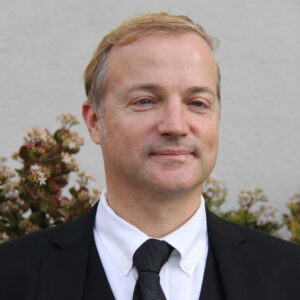
Viktor
Tóth
PhD Candidate, Systematic Theology
About Viktor
Rev. Viktor J. Tóth was born and raised in Hungary where he received a Bachelor’s Degree in Biblical Studies, and completed two years graduate studies in Philosophy. After moving to the US, he graduated from Fuller Theological Seminary completing its MDiv program in 2015. He is a PhD candidate in the same institution focusing on Theological Anthropology. In connection with theological resources, his fields of research include paleoanthropology, brain sciences, complex systems theory, philosophy of mind, and psychology. He is fluent in English and Hungarian, and proficient in German, Hebrew, Koine Greek, and Latin. He published several articles and chapters in peer-reviewed journals and edited books. He is an ordained minister.
Education
Fuller Theological Seminary
2015
Master of Divinity
Saint Paul Academy
BA in Biblical Studies
1999
Research Interests
Theology, philosophy, complex systems theory, psychology, paleoanthropology.
Publications
“Ultimate Reality in Three Distinctive Traditions,” in Interfaith Engagement Beyond the Divide: Approaches, Experiences, and Practices, eds., Johannes M. Luetz, Denise A. Austin, Adis Duderija (
2023, Springer
Creation and Humanity: Veli-Matti Kärkäinen’s Answer to the Ultimate Question
2020, Dialog
Visions and Visionaries at the Dawn of Humanity: Stone Age Religion and Spiritual Neuroscience
2023, Engaging Particularities
Fuller Seminary hosts these profiles as a courtesy to our doctoral students. Their views are their own and do not necessary reflect the views of the seminary.
